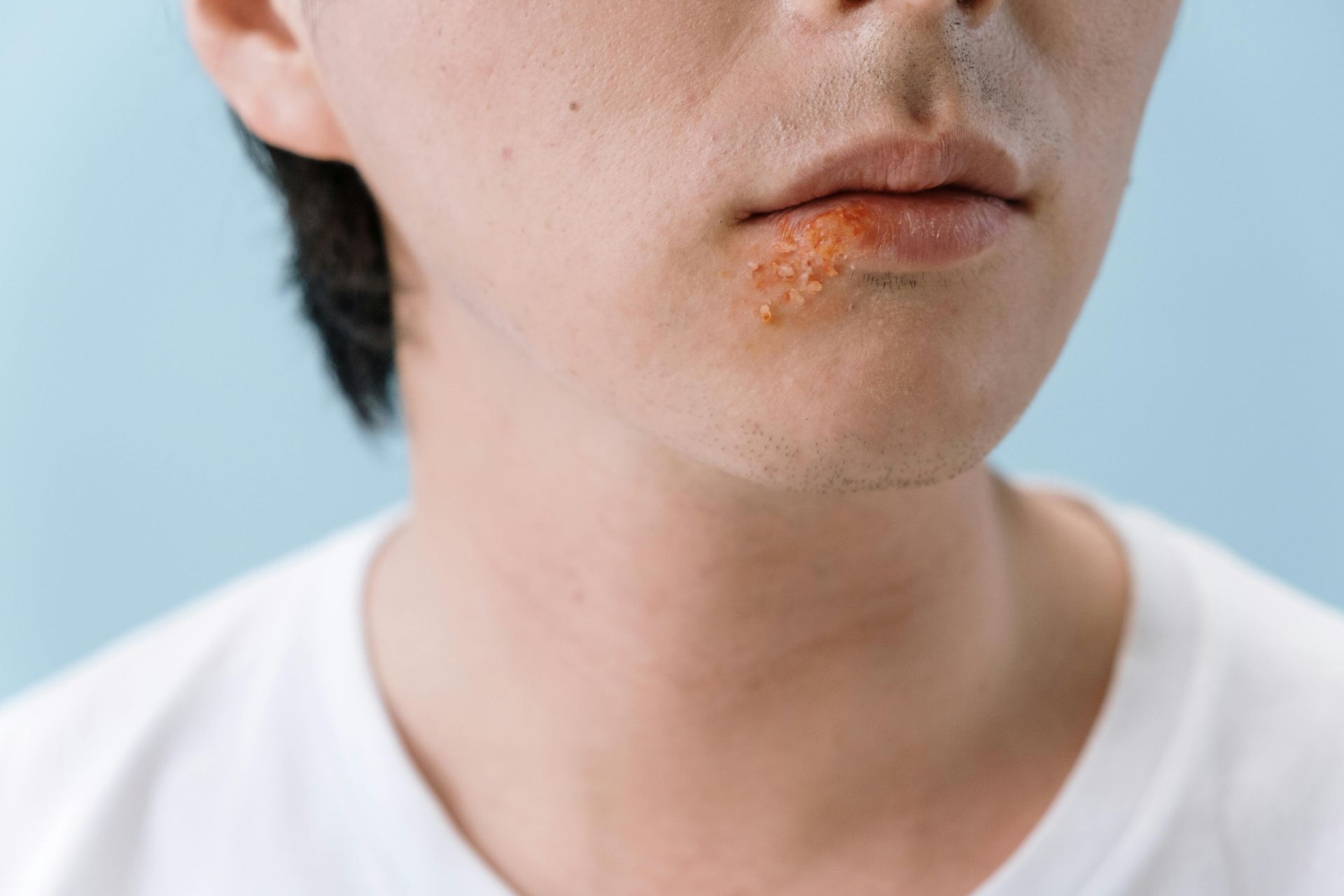HERPES GINGIVOSTOMATITIS
This infection, commonly affecting young children, is characterized by fever, ulcers, and inflammation (redness) on the inner surfaces of the lips, gums, and throat. While it typically lasts only a few days, it can cause significant discomfort. This condition results from a primary (or initial) infection with the Herpes simplex virus. Symptoms include mouth ulcers, a gum infection with noticeably red and swollen gums (known as gingivostomatitis), and fever. The herpes virus that affects the mouth is different than the one that affects the genitals. If you suspect your child has a herpes simplex infection, it is important to schedule an appointment with your healthcare provider promptly. Antiviral medications, such as acyclovir and valacyclovir, can be effective in treating this infection.
Gingivostomatitis is treated as follows:
- Encourage fluids to ensure that your child stays well hydrated (see the diarrhea section of this handbook for signs of dehydration). Try to avoid carbonated beverages or fruit juices which will worsen the discomfort. Milk, ice cream, Popsicles and Jello are all good choices.
- Acetaminophen (Tylenol) may be used for fever (see Dosing Guide).
- A mixture of equal volumes of Benadryl elixir and Maalox or Mylanta liquid can be given to the child to help with the mouth pain and sore throat. The dose after mixing the two medications together is two teaspoons for every 22 pounds of body weight. This can be given as often as every four hours.
- Oral medications such as acyclovir or valacyclovir can be prescribed to treat both primary and recurrent herpes simplex infections. Recurrent infections, often referred to as cold sores or fever blisters, occur as a result and reactivation of the primary HSV gingivostomatitis. The herpes simplex virus remains in the body and can reactivate due to certain stimuli, such as the presence of a cold and/or fever. To obtain a prescription for these medications, a visit to our office is necessary.


